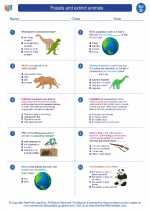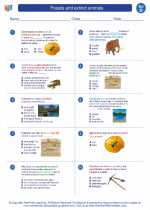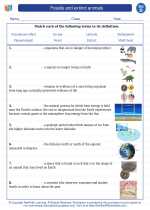Helminths: An Overview
Helminths are a group of parasitic worms that infect humans and other animals. They are classified into three major groups: cestodes (tapeworms), nematodes (roundworms), and trematodes (flukes). These worms have complex life cycles and can cause a range of illnesses in their hosts.
Types of Helminths
- Cestodes (Tapeworms): These flat, ribbon-like worms can live in the human intestine and absorb nutrients from the host's digestive system.
- Nematodes (Roundworms): These elongated, cylindrical worms can infect the human intestine, lungs, and other tissues, causing diseases such as ascariasis and hookworm infection.
- Trematodes (Flukes): These leaf-shaped worms can infect the liver, lungs, and intestines, and are often acquired through the consumption of contaminated water or undercooked fish.
Life Cycle of Helminths
The life cycle of helminths typically involves multiple stages, often including a period of development in an intermediate host before infecting the final host. For example, some tapeworms require an intermediate host, such as a pig or cow, before infecting humans.
Health Impacts
Helminth infections can lead to a variety of health issues, including malnutrition, anemia, organ damage, and impaired cognitive development, particularly in children. In some cases, severe infections can be fatal if left untreated.
Prevention and Treatment
Preventative measures for helminth infections include good hygiene practices, proper sanitation, and cooking food thoroughly. Treatment typically involves the use of anthelmintic medications to eliminate the worms from the body.
Study Guide
Here are some key points to remember when studying helminths:
- Identify the three major groups of helminths and their respective characteristics.
- Describe the life cycle of helminths, including the role of intermediate hosts.
- Explain the potential health impacts of helminth infections on the human body.
- Discuss preventative measures and treatment options for helminth infections.
◂Science Worksheets and Study Guides Fourth Grade. Fossils and extinct animals

 Worksheet/Answer key
Worksheet/Answer key
 Worksheet/Answer key
Worksheet/Answer key
 Worksheet/Answer key
Worksheet/Answer key
 Vocabulary/Answer key
Vocabulary/Answer key
 Vocabulary/Answer key
Vocabulary/Answer key
 Vocabulary/Answer key
Vocabulary/Answer key
 Vocabulary/Answer key
Vocabulary/Answer key
